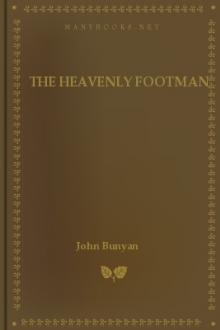The Children's Own Longfellow - Henry W. Longfellow (reading a book .TXT) 📗

- Author: Henry W. Longfellow
Book online «The Children's Own Longfellow - Henry W. Longfellow (reading a book .TXT) 📗». Author Henry W. Longfellow
It was the schooner Hesperus, That sailed the wintry sea; And the skipper had taken his little daughter, To bear him company.
Blue were her eyes as the fairy-flax, Her cheeks like the dawn of day, And her bosom white as the hawthorn buds, That ope in the month of May.
The skipper he stood beside the helm, His pipe was in his mouth, And he watched how the veering flaw did blow The smoke now West, now South.
Then up and spake an old Sailor, Had sailed to the Spanish Main, "I pray thee, put into yonder port, For I fear a hurricane.
"Last night, the moon had a golden ring, And to-night no moon we see!" The skipper, he blew a whiff from his pipe, And a scornful laugh laughed he.
Colder and louder blew the wind, A gale from the Northeast, The snow fell hissing in the brine, And the billows frothed like yeast.
Down came the storm, and smote amain The vessel in its strength; She shuddered and paused, like a frighted steed, Then leaped her cable's length.
"Come hither! come hither! my little daughter, And do not tremble so; For I can weather the roughest gale That ever wind did blow."
He wrapped her warm in his seaman's coat Against the stinging blast; He cut a rope from a broken spar, And bound her to the mast.
"O father! I hear the church-bells ring, Oh say, what may it be?" "'T is a fog-bell on a rock-bound coast!"-- And he steered for the open sea.
"O father! I hear the sound of guns, Oh say, what may it be?" "Some ship in distress, that cannot live In such an angry sea!"
"O father! I see a gleaming light, Oh say, what may it be?" But the father answered never a word, A frozen corpse was he.
Lashed to the helm, all stiff and stark, With his face turned to the skies, The lantern gleamed through the gleaming snow On his fixed and glassy eyes.
Then the maiden clasped her hands and prayed That saved she might be; And she thought of Christ, who stilled the wave, On the Lake of Galilee.
And fast through the midnight dark and drear, Through the whistling sleet and snow, Like a sheeted ghost, the vessel swept Tow'rds the reef of Norman's Woe.
And ever the fitful gusts between A sound came from the land; It was the sound of the trampling surf On the rocks and the hard sea-sand.
The breakers were right beneath her bows, She drifted a dreary wreck, And a whooping billow swept the crew Like icicles from her deck.
She struck where the white and fleecy waves Looked soft as carded wool, But the cruel rocks, they gored her side Like the horns of an angry bull.
Her rattling shrouds, all sheathed in ice, With the masts went by the board; Like a vessel of glass, she stove and sank, Ho! ho! the breakers roared!
At daybreak, on the bleak sea-beach, A fisherman stood aghast, To see the form of a maiden fair, Lashed close to a drifting mast.
The salt sea was frozen on her breast, The salt tears in her eyes; And he saw her hair, like the brown sea-weed, On the billows fall and rise.
Such was the wreck of the Hesperus, In the midnight and the snow! Christ save us all from a death like this, On the reef of Norman's Woe!
[Illustration: THE VILLAGE BLACKSMITH Howard Smith
And children coming home from school Look in at the open door ]
THE VILLAGE BLACKSMITHUnder a spreading chestnut-tree The village smithy stands; The smith, a mighty man is he, With large and sinewy hands; And the muscles of his brawny arms Are strong as iron bands.
His hair is crisp, and black, and long, His face is like the tan; His brow is wet with honest sweat, He earns whate'er he can, And looks the whole world in the face, For he owes not any man.
Week in, week out, from morn till night, You can hear his bellows blow; You can hear him swing his heavy sledge, With measured beat and slow, Like a sexton ringing the village bell, When the evening sun is low.
And children coming home from school Look in at the open door; They love to see the flaming forge, And hear the bellows roar, And catch the burning sparks that fly Like chaff from a threshing-floor.
He goes on Sunday to the church, And sits among his boys; He hears the parson pray and preach, He hears his daughter's voice, Singing in the village choir, And it makes his heart rejoice.
It sounds to him like her mother's voice, Singing in Paradise! He needs must think of her once more, How in the grave she lies; And with his hard, rough hand he wipes A tear out of his eyes.
Toiling,--rejoicing,--sorrowing, Onward through life he goes; Each morning sees some task begin, Each evening sees it close; Something attempted, something done, Has earned a night's repose.
Thanks, thanks to thee, my worthy friend, For the lesson thou hast taught! Thus at the flaming forge of life Our fortunes must be wrought; Thus on its sounding anvil shaped Each burning deed and thought.
[Illustration: EVANGELINE
Homeward serenely she walked with God's benediction upon her. When she had passed, it seemed like the ceasing of exquisite music ]
EVANGELINEThis is the forest primeval. The murmuring pines and the hemlocks, Bearded with moss, and in garments green, indistinct in the twilight, Stand like Druids of eld, with voices sad and prophetic, Stand like harpers hoar, with beards that rest on their bosoms. Loud from its rocky caverns, the deep-voiced neighboring ocean Speaks, and in accents disconsolate answers the wail of the forest.
This is the forest primeval; but where are the hearts that beneath it Leaped like the roe, when he hears in the woodland the voice of the
huntsman? Where is the thatch-roofed village, the home of Acadian farmers,-- Men whose lives glided on like rivers that water the woodlands, Darkened by shadows of earth, but reflecting an image of heaven? Waste are those pleasant farms, and the farmers forever departed! Scattered like dust and leaves, when the mighty blasts of October Seize them, and whirl them aloft, and sprinkle them far o'er the ocean. Naught but tradition remains of the beautiful village of Grand-Pre.
Ye who believe in affection that hopes, and endures, and is patient, Ye who believe in the beauty and strength of woman's devotion, List to the mournful tradition, still sung by the pines of the forest; List to a Tale of Love in Acadie, home of the happy.
PART THE FIRST I Pg 1In the Acadian land, on the shores of the Basin of Minas, Distant, secluded, still, the little village of Grand-Pre Lay in the fruitful valley. Vast meadows stretched to the eastward, Giving the village its name, and pasture to flocks without number. Dikes, that the hands of the farmers had raised with labor incessant, Shut out the turbulent tides; but at stated seasons the flood-gates Opened, and welcomed the sea to wander at will o'er the meadows. West and south there were fields of flax, and orchards and cornfields Spreading afar and unfenced o'er the plain; and away to the northward Blomidon rose, and the forests old, and aloft on the mountains Sea-fogs pitched their tents, and mists from the mighty Atlantic Looked on the happy valley, but ne'er from their station descended. There, in the midst of its farms, reposed the Acadian village. Strongly built were the houses, with frames of oak and of hemlock, Such as the peasants of Normandy built in the reign of the Henries. Thatched were the roofs, with dormer-windows; and gables projecting Over the basement below protected and shaded the doorway.
PART THE FIRST I Pg 2There in the tranquil evenings of summer, when brightly the sunset Lighted the village street, and gilded the vanes on the chimneys, Matrons and maidens sat in snow-white caps and in kirtles Scarlet and blue and green, with distaffs spinning the golden Flax for the gossiping looms, whose noisy shuttles within doors Mingled their sounds with the whir of the wheels and the songs of the
maidens. Solemnly down the street came the parish priest, and the children Paused in their play to kiss the hand he extended to bless them. Reverend walked he among them; and up rose matrons and maidens, Hailing his slow approach with words of affectionate welcome. Then came the laborers home from the field, and serenely the sun sank Down to his rest, and twilight prevailed. Anon from the belfry Softly the Angelus sounded, and over the roofs of the village Columns of pale blue smoke, like clouds of incense ascending, Rose from a hundred hearths, the homes of peace and contentment. Thus dwelt together in love these simple Acadian farmers,-- Dwelt in the love of God and of man. Alike were they free from Fear, that reigns with the tyrant, and envy, the vice of republics. Neither locks had they to their doors, nor bars to their windows; But their dwellings were open as day and the hearts of the owners; There the richest was poor, and the poorest lived in abundance.
Somewhat apart from the village, and nearer the Basin of Minas, Benedict Bellefontaine, the wealthiest farmer of Grand-Pre, Dwelt on his goodly acres; and with him, directing his household, Gentle Evangeline lived, his child, and the pride of the village. Stalworth and stately in form was the man of seventy winters; Hearty and hale was he, an oak





Comments (0)